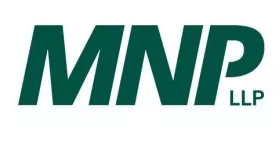Synopsis
Business interruptions can happen to anyone — and many business owners are unsure of how to navigate the insurance claim process to gain appropriate compensation. MNP recently helped a client quantify their losses to receive a greater settlement than the initial offer.
For National Insurance Awareness Day, we have summarized
everything you need to know about this complex process to help your
business on its journey toward recovery.
Most business owners don't want to consider the possibility that a disaster could disrupt the company they've worked so hard to build. However, incidents such as fires, earthquakes, or cyber attacks can happen to anyone — and it's important that you have the right insurance policy and coverages in place to protect your business from unexpected interruptions.
In advance of National Insurance Awareness Day, we've summarized what you need to know about the complex claim process to help you navigate the path forward. We've also included a case study to show how a professional can help you get the most from your policies.
What is business interruption insurance?
Business interruption insurance protects your organization from financial losses when a covered event disrupts its ability to operate. It provides the necessary financial stability to help your business get back up and running after an interruption occurs.
What situations are business interruption insurance designed to cover?
Business interruption insurance protects your business from a variety of events that may impact its ability to operate. This includes natural disasters such as earthquakes, fires, or storms. It can also include other incidents such as cyber-attacks that take your business temporarily offline, or an equipment failure that brings your operations to a halt.
However, business interruption insurance does not cover everything — you should review your policy with an advisor to understand its limitations and which events are covered.
What does business interruption insurance cover?
Business interruption insurance covers loss of income while your business cannot operate due to an insured event. Additionally, it provides coverage for expenses that would not have been incurred if the interruption didn't happen, such as paying overtime or renting a temporary warehouse.
Many policies also include the expense of retaining a professional to quantify your losses. It will add this expense to the claim — fully covering the cost.
How does business interruption insurance work?
Business interruption insurance takes effect when a covered event impacts your operations. It quantifies the losses and additional expenses you incurred while your business was unable to operate as a claim to the insurance company.
The insurance company then reviews your claim and policy coverage to determine the amount of compensation that it will pay out in accordance with your policy and losses. Insurance companies consider factors including the length of the interruption, the amount of revenue lost, and how much your business could have earned if the event had not occurred.
What are the steps to take?
Any disruption to your business is stressful, and many business owners struggle to navigate the complex process. We've summarized the following steps to help protect your business before, during, and after an interruption event:
Have the right policy in place
Ensure you have the right policy in place before an interruption impacts your business. An advisor can review your policies to help you understand your coverage. They can also identify gaps in your policies and ensure your coverage terms and amounts will be sufficient to protect your business.
Act quickly
Arrive at the site of the emergency as quickly as possible when a business interruption event occurs (provided it is safe to do so). Make sure both your employees and customers are safe and provide any assistance they may need. After ensuring the safety of everybody on the premises, document the damage to provide evidence of your losses to your insurance provider.
Mitigate your losses
Take steps to prevent additional losses — such as putting up fencing to secure the premises or salvaging inventory and equipment. You might also consider sending your products to a different supplier, ordering materials for repairs, or working overtime to mitigate further losses.
Submit a claim
Contact your insurance provider when a business interruption occurs. They will send an adjuster to the site to review the damages and begin the recovery process. Additionally, they will assess your policy terms to determine how much compensation will be provided to help your business recover.
Throughout the process, you will need to provide documentation of your income, ongoing expenses, and more. It is important to ensure the proper information is provided to speed up the compensation and recovery process.
Seek outside advice
The insurance claim process is complex and it's not always obvious if you are receiving adequate compensation for the interruption to your business. Retaining a professional can help you navigate this process and ensure you receive appropriate compensation.
A professional has the knowledge to calculate your losses and an understanding of policy terms to help you make the most of your coverage. They can help you prepare your insurance claim while you focus on getting your business back up and running.
Case study: Business interruption insurance claim
When a privately-owned high-end furniture store experienced an insurance loss while they were on track to double their annual growth, they approached MNP to help quantify the losses. Their biggest question: How do you factor in such growth while making a claim?
The challenge
Our client was experiencing nearly 100 percent year-over-year growth figures when the insurance event occurred. However, insurance companies can be conservative institutions — and when seeing a period of growth that is out of the ordinary, may treat it as an outlier rather than a predictor of future success. The insurance company didn't believe the upward trend would continue.
The solution
After taking care of the immediate need for repairs, the furniture company turned its attention toward calculating its losses due to the business interruption. Insurance companies consider several factors, including how long the interruption was, how much revenue was lost (and what expenses were reduced) by pausing operations, and how much the company could have earned had the event not occurred.
Our team presented figures to the insurer that were aggressive but evidence-based, which showed that this interruption during a time of such strong growth should result in a large loss amount. We were able to lay out multiple different scenarios showing how the historical results confirmed our initial trending analysis, even though it appeared aggressive to the insurer.
The outcome
By showing the results of what occurred after repairs, along with the trend leading into the loss period, we were able to show the insurance company proof that our aggressive figures were accurate. They offered a settlement figure over 60 percent higher than their first offer.
Take the next steps
Business interruption insurance plays a key role in helping your business recover from an unexpected event. It is essential to have the right coverage in place — and to have an experienced professional ensure you get the most from your policies.
The content of this article is intended to provide a general guide to the subject matter. Specialist advice should be sought about your specific circumstances.

